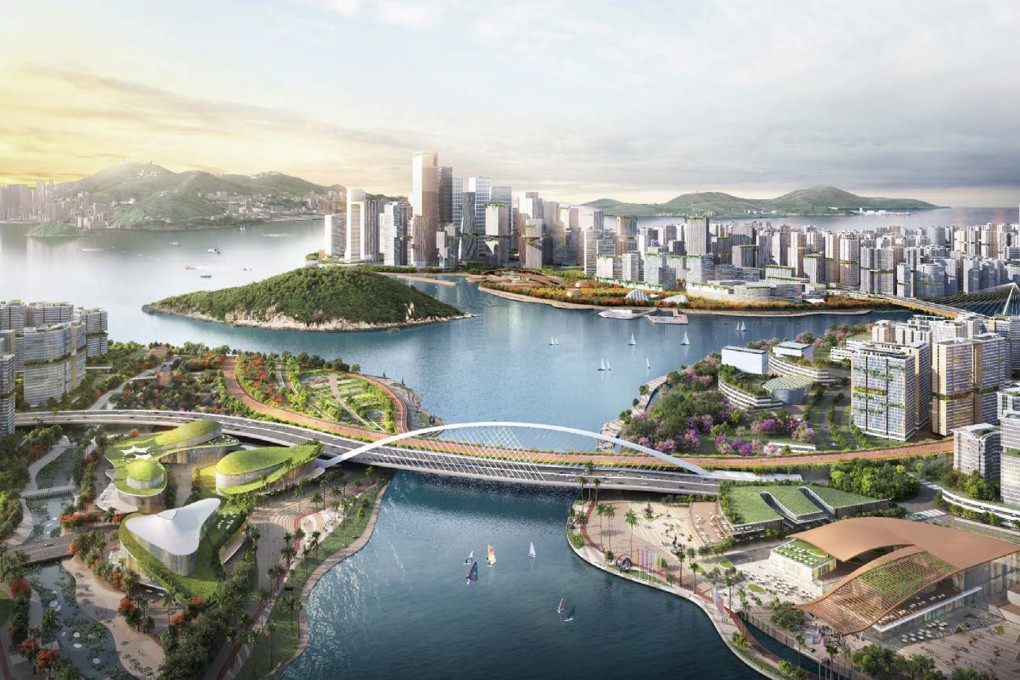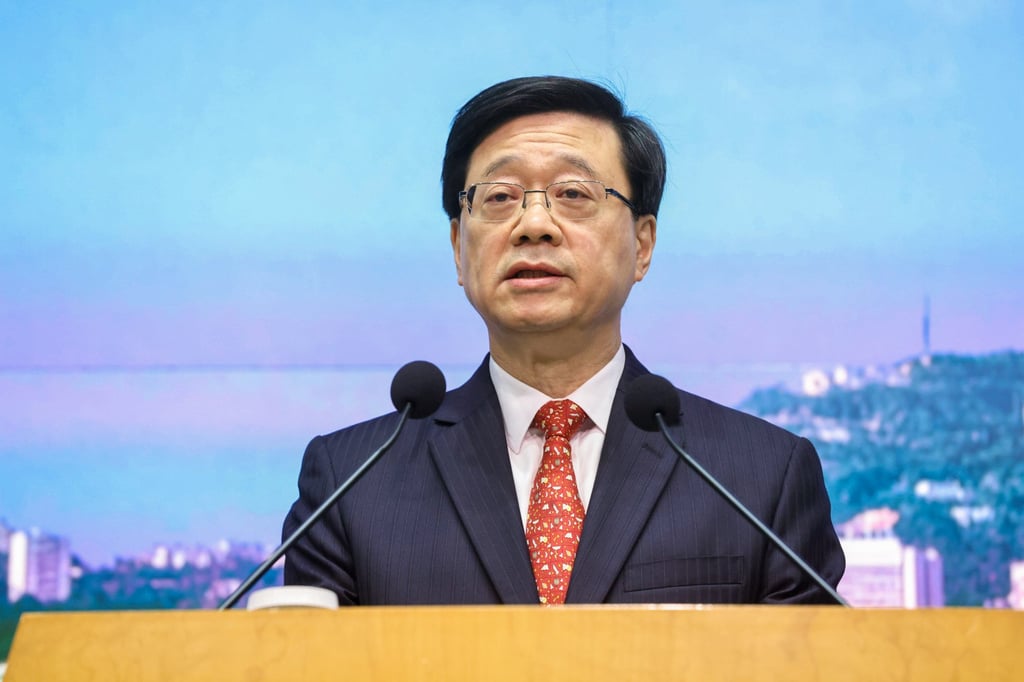Hong Kong leader says work on Northern Metropolis and Lantau artificial islands to proceed simultaneously, no need to prioritise one over the other
- Chief Executive John Lee dismisses Regina Ip’s suggestion to prioritise Northern Metropolis a day after top adviser’s comments
- He reminds public Hong Kong is not competing with itself but also with global cities, points out reclamation plan still not as extensive as rival Singapore’s


Lee told the media before his weekly meeting with the key decision-making Executive Council: “We are not competing with ourselves only, but with the world. We must outperform others in terms of competitiveness … One aspect is whether we have enough land to develop economics and commerce.
“Over the years, because of limitations in land supply, it’s actually become a bottleneck for us to be competitive. We need to compete, we need to improve the housing condition, we need to have sufficient land for commercial purposes.
“I hope our vision can be far-reaching and we should look at the bigger picture, rather than getting narrower and smaller.”
On Monday Ip, the Exco convenor, had urged the government to prioritise the Northern Metropolis project near the border with mainland China – a plan to develop land there into an international IT hub, yielding 900,000 flats for 2.5 million people.